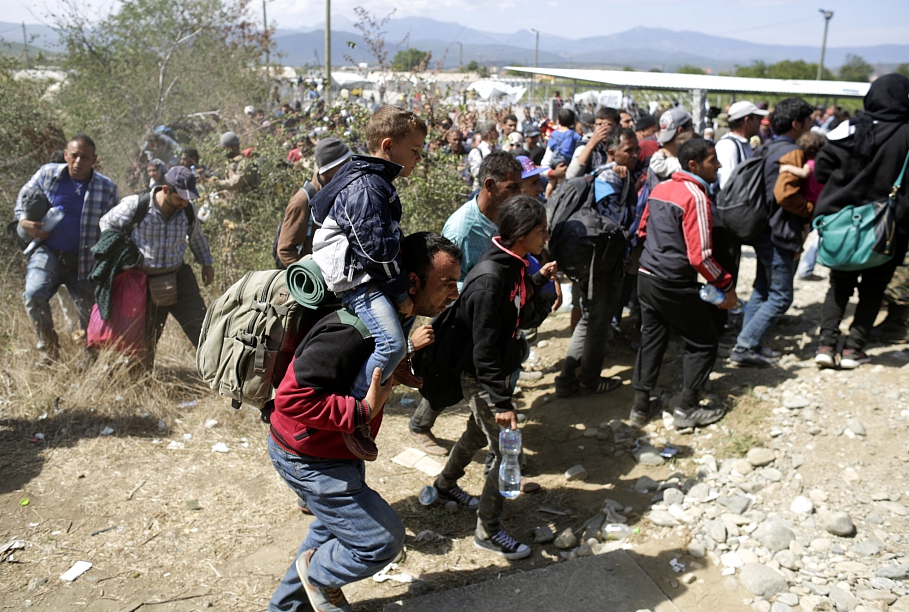The National Alliance (Nacionālā apvienība) and the Greens and Farmers Union (Zaļo un zemnieku savienība) are strongly against the plan, while Unity (Vienotība) still talks about solidarity within the EU for relocating refugees, reported a story on Latvian Television aired on Wednesday.
Amendments suggested by the National Alliance to Asylum law will be proposed today. These amendments, likely to be supported by the legislator, stipulate that additional refugees will not be able to be admitted without acceptance by the parliament.
"This announcement [by Juncker] is quite reckless, and we don't see anything that Mr. Juncker is planning to do about the causes, not the consequences," said Gaidis Bērziņš, co-chairman of National Alliance.
"We see refugee flows each day on television each day, and nothing is said about strengthening borders and fighting human traffickers," he added, voicing a rhetoric that has become all but too familiar in the last months.
While the Greens and Farmers Union seems to have taken a more relaxed stance, but they are not ready to admit more than the already accepted 250 refugees.
"We cannot make allocating human beings the same way we do with milk quotas. Or sugar beet quotas for farmers! It is, in my opinion, an unacceptable princple," said Augusts Brigmanis, head of the Greens and Farmers Union fraction.
Straujuma expects that further decisions by the EC are to be expected, and they won't be moving too quickly - that is, they won't be made the next week.
Meanwhile, President Raimonds Vējonis has urged the politicians to abstain from any activities that could destabilize the government.
Voting for the new Juncker proposal is expected in the EU's Justice and Home Affairs Council and the European Council.
The new plan states that almost all EU countries, except the United Kingdom, Ireland, and Denmark should admit a total of 120,000 people in the relocation scheme. Those three countries have insisted on opt-outs.
Latvia is expected to admit 237 refugees from Hungary, 221 from Greece and 68 from Italy.
The refugee quotas for each country are calculated according to number of factors, such as state GDP, population, asylum seekers accepted in previous years, and the unemployment rate.
As reported, the government agreed this past July that Latvia would take a total of 250 immigrants over the next two years.
This caused serious disagreements within the ruling coalition parties and a public protest.
A working group headed by the Interior Ministry continues to ponder the refugee question.
European Commission President Jean Claude Juncker in his State of Union address to the European Parliament has proposed that the EU member states should accept 160,000 refugees via mandatory refugee quotas.
Juncker also called on member states to ensure that the asylum seekers have rights to work in the member countries they have been relocated to from the first day.





























